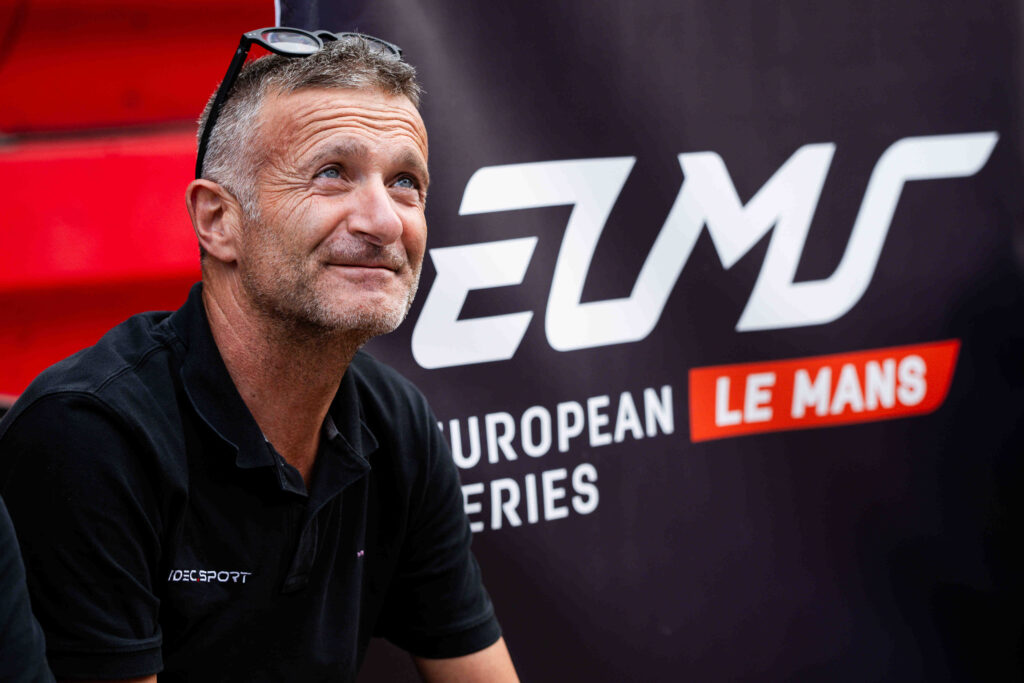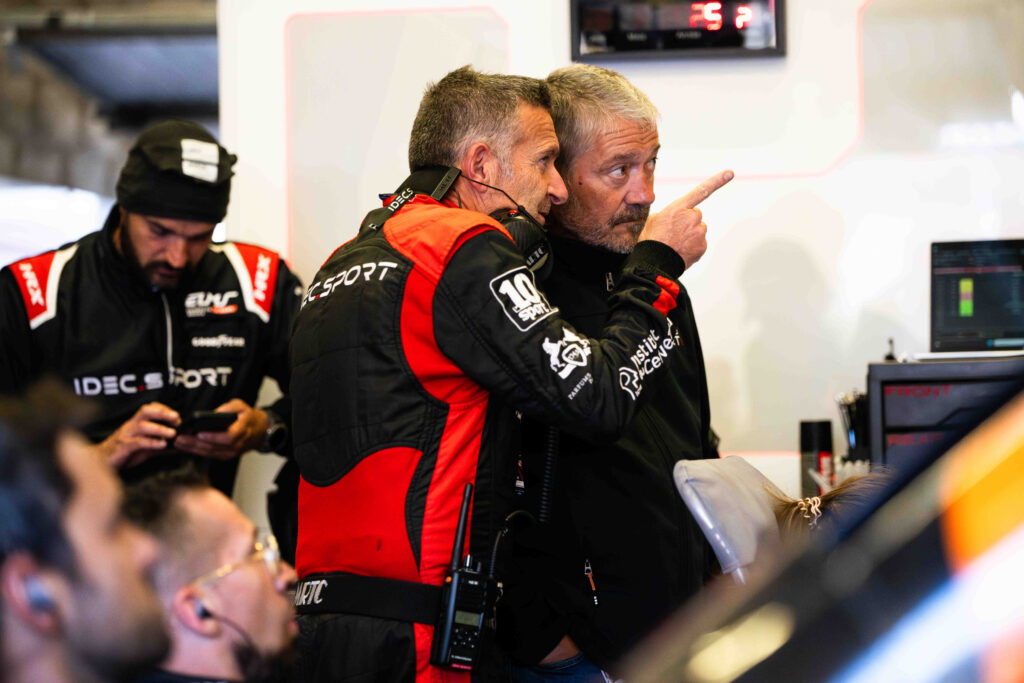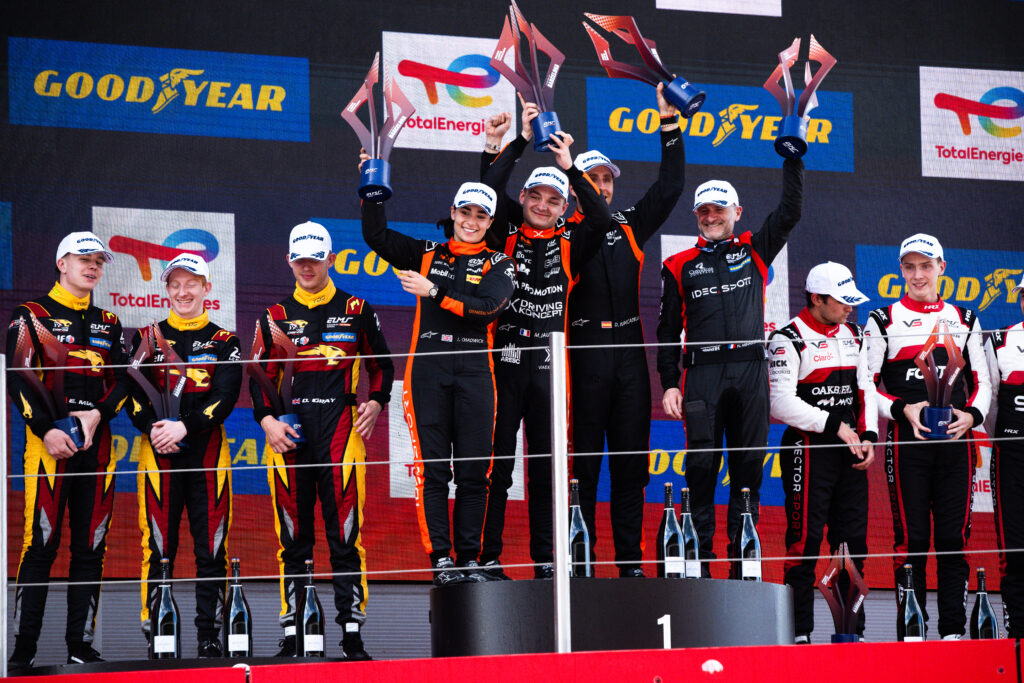With a structure ranging from 40 to around 60 people depending on the race, LMP2 teams are “special enterprises”, with specific expertise and operations, all under the pressure of performance and tight deadlines. All of this with one goal: to achieve the best result every Sunday.
Let’s dive into the backstage world with Nicolas Minassian, Team Principal at IDEC SPORT for the past eight years.

How does an LMP2 team work?
Forty people are involved in running two cars during six races in the ELMS Championship: tire men, system engineers, data engineers, mechanics, workshop managers, team crews, coordinators, team managers, and chief engineers. The chief engineer is the person who has the most contact with the drivers and is responsible for the car. The technical director, on the other hand, has a more global vision. He also acts as the link between the team leader, the workshop manager, logistics, and the truck drivers. There must be complete trust between each member, and communication must be perfect.
In terms of transport, no less than three semi-trailers and a van are needed to transport the equipment (around nine tons at each meeting). The trucks, which travel more than 12,700 km during the season, are filled with parts essential to the smooth running of the cars, spare parts, but also everything needed to run a racing team, such as the engineers’ equipment, which must be connected to a specific network in order to link up with the cars, or even everything needed to set up the pit or all the necessary equipment for the tires. Of course, nothing can be left off the checklist, which includes everything from mechanics to drivers, engineers, logistics, osteopaths, and communications. But our team is well-oiled and efficient.
Between races, when the team returns, the staff meets in a 3,500 m² workshop. The team takes the opportunity to catch up with those who do not travel but who play an equally essential role in day-to-day operations: HR, accounting, sales, etc.
Can you tell us about your role as Team Principal?
In the workshop, I’m a business manager, overseeing purchasing, recruitment, and administration. Upstream and during races, I have a sporting role, covering operations, partnerships, racing, recruitment, and driver management.
Beyond the sporting results, which are already a challenge in themselves, are there any others?
Yes, including one that is essential: communication, because there is a lot going on in a pit. That’s why we have briefings. We have them before and after sessions, with the drivers and engineers. There are also unplanned meetings that are useful for discussing a specific topic or any issues that may arise. Not to mention exchanges with all cross-functional positions, which are just as important.”Une course se gagne en piste mais aussi dans les coulisses.

IDEC SPORT is known for its human values. How do you make sure everything works together?
We know why we recruit certain people, and everyone who applies knows why they want to join IDEC SPORT. We often say that as long as people enjoy themselves and are proud of their work, there’s no reason for the atmosphere to be bad.
Finally, drivers obviously aim to use all their knowledge to perform well and avoid pitfalls, but what else do you expect from them?
Of course, on the track, in qualifying, in the race, when it comes to car setup, the feeling they have is essential and must be described to the engineers as accurately as possible. This is not an easy task, by the way. But drivers also play an important role in motivating their crew and the entire team.

